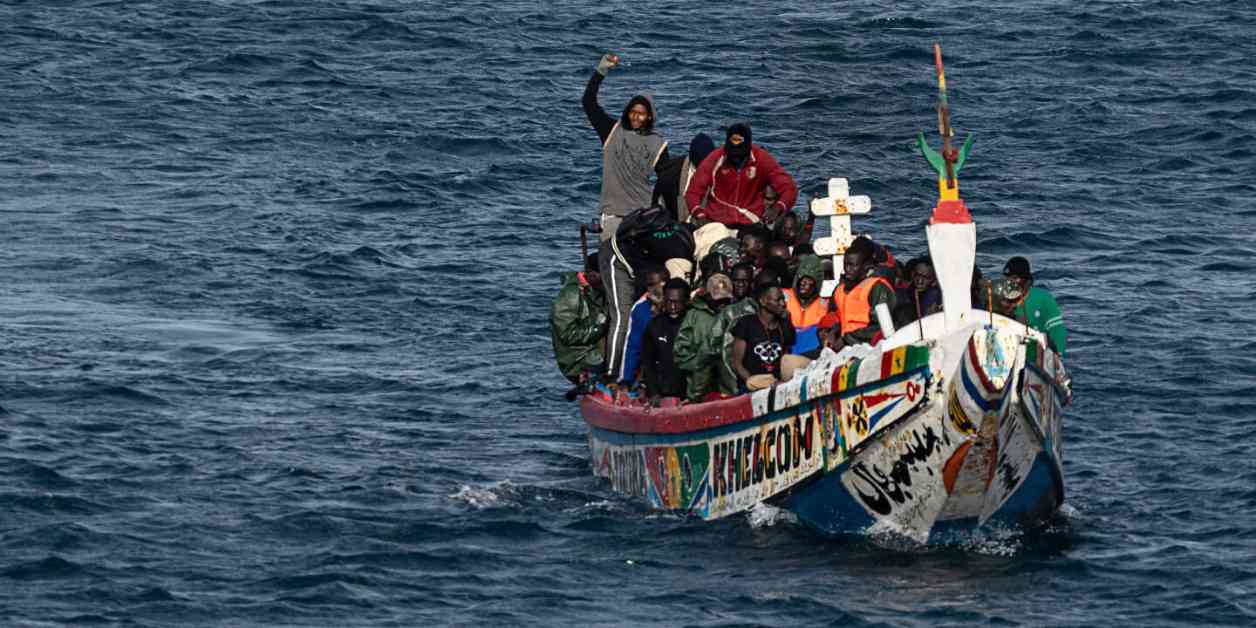Tragic Loss: Over 26 Migrants Perish in Sea Off Senegal
In a devastating incident, at least 26 migrants lost their lives in a tragic shipwreck off the coast of Senegal. This heart-wrenching event sheds light on the dangers faced by thousands of Africans attempting the perilous journey across the Atlantic Ocean to reach Europe, primarily through the Spanish Canary Islands.
The vessel involved in the illegal migration capsized on Sunday, September 8th, near Mbour, as reported by the Senegalese navy on social media. Search and rescue operations were immediately launched, with three navy ships and the assistance of a Spanish maritime surveillance aircraft. The search efforts continued on Monday along the shores, with journalists from the Agence France-Presse (AFP) observing the ongoing mission. While several locals mentioned that the boat was carrying dozens of migrants, this information could not be officially confirmed by the AFP. Family members of the victims and concerned onlookers gathered at the seaside in Mbour, anxiously awaiting updates on the missing individuals.
On Monday, September 9th, the Senegalese Navy intercepted two boats carrying a total of 421 undocumented migrants, including twenty children. Although the exact location of the operation and the nationalities of the migrants were not disclosed, this incident highlights the ongoing challenges faced by those seeking to migrate irregularly in search of better opportunities.
The Senegal coast has been a key departure point for many Africans embarking on the dangerous journey across the Atlantic in overcrowded and often dilapidated boats in a bid to reach Europe. Tragically, thousands of lives have been lost in recent years as a result of these perilous attempts. The number of migrants arriving in the Canary Islands has surged, with over 22,000 individuals reaching the islands since the beginning of the year, more than double the figures from the previous year.
Mohamed Barro, a municipal councilor in the city, expressed the profound impact of the ongoing tragedies, stating, « It’s a real catastrophe that we are currently experiencing, and unfortunately, we will continue to experience this because the youth are so determined to leave. » Barro recounted the loss of his 38-year-old nephew, a married father of two, in the shipwreck and described the agonizing wait of five hours to retrieve his nephew’s body from the morgue at the Grand Mbour hospital.
In late August, the Spanish Prime Minister, during a tour of West Africa, announced a new migration regulation agreement with Senegal. This accord includes provisions for the integration of new sectors of activity and the training of Senegalese workers relocating to Spain, aiming to address the complex challenges of irregular migration while fostering cooperation between the two nations.
The tragic incident off the coast of Senegal serves as a stark reminder of the harsh realities faced by migrants seeking a better life in Europe and the urgent need for comprehensive solutions to address the root causes of irregular migration. As the international community grapples with the complexities of migration flows, it is imperative to prioritize human lives and ensure the safety and well-being of all individuals, regardless of their migration status.
Challenges of Migration
The perilous journey undertaken by migrants crossing the Atlantic Ocean from Senegal to Europe highlights the profound challenges and risks associated with irregular migration. Overcrowded and often unseaworthy vessels, coupled with treacherous sea conditions, pose significant threats to the lives of those attempting the crossing. Despite the dangers, many individuals are driven to undertake these risky voyages in search of better opportunities and a brighter future for themselves and their families.
The rising number of migrants arriving in the Canary Islands underscores the pressing need for comprehensive strategies to address the root causes of irregular migration. Economic disparities, political instability, and lack of viable livelihood options in countries of origin often compel individuals to embark on dangerous journeys in search of safety and prosperity elsewhere. Addressing these underlying factors requires a multi-faceted approach that prioritizes sustainable development, human rights, and cooperation among nations to create pathways for safe and legal migration.
Humanitarian Response and Cooperation
In the wake of the tragic incident off the coast of Senegal, there is an urgent need for a coordinated humanitarian response to provide assistance to those affected by the shipwreck and support the families of the victims. Efforts to enhance search and rescue operations, improve surveillance and monitoring of migration routes, and strengthen cooperation among countries are essential to prevent further loss of life at sea.
International partnerships and collaboration play a crucial role in addressing the complex challenges of irregular migration and ensuring the protection of migrants’ rights. By working together to develop sustainable solutions, promote social inclusion, and create opportunities for legal migration, nations can mitigate the risks faced by vulnerable populations and uphold the principles of dignity, respect, and solidarity.
As the global community grapples with the complexities of migration, it is essential to adopt a human-centered approach that prioritizes the well-being and safety of all individuals, irrespective of their migration status. By fostering understanding, empathy, and cooperation, we can build a more inclusive and compassionate world where every person is valued and afforded the opportunity to thrive.

